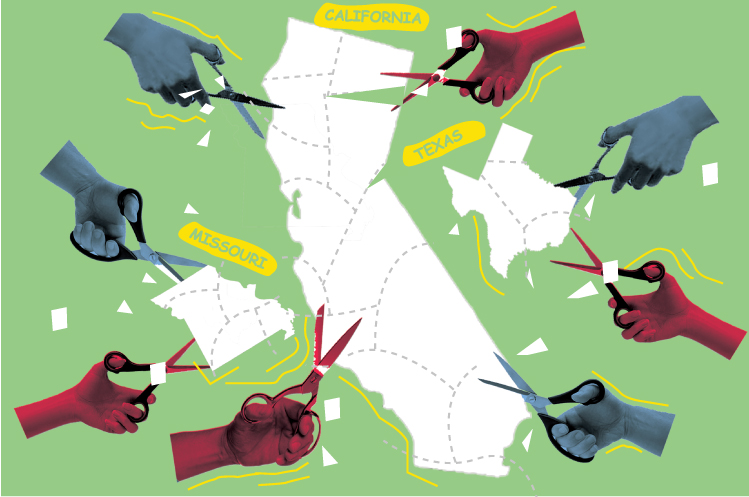
If one believes the polls, it seems that Proposition 50 will pass quite comfortably on election day.
On Friday, Emerson College Polling released the results of its recent survey of likely voters. A resounding 57% of such voters indicated they support the proposal to gerrymander the state to disadvantage Republicans for the next three congressional elections. Just 37% of voters oppose it.
This is consistent with polling from CBS News and YouGov conducted Oct. 16-21 which found that 62% of likely voters supported it, with 38% opposed.
In turn, this builds on findings earlier this month, when research firm co/efficient reported that 56% of likely voters supported Prop. 50, with just 36% opposed.
And this is way up from the uncertainty expressed by Californians back in August when the Institute of Governmental Studies at the University of California, Berkeley found that 48% of Californians supported it versus 32% opposed. We can now see how the bulk of undecided voters went.
If the more recent polling is accurate, the Democrats will have succeeded in making this purely a partisan issue with standard partisan sorting.
A roughly 60-40 split is about how every state gubernatorial race has gone since Jerry Brown’s triumph over Neel Kashkari in 2014. It’s also how the 2021 recall of Newsom went down (38% in favor, 62% opposed).
It is a credit to the power of the state Democratic political machine that only a few voices have thwarted partisan expectations. That includes the several members of the Citizens Redistricting Commission who have spoken up; their work is being thrown out for purely partisan aims.
Despite early ponderings from pundits about whether former Gov. Arnold Schwarzenegger could be a key player in the fate of Prop. 50, it doesn’t appear to be working out that way as he has largely chosen to speak out in select formats that haven’t moved the needle.
Even ostensibly good government groups stood down from the matter.
The League of Women Voters of California initially issued a statement in August saying that“California’s independent redistricting commission is the gold standard — a national model for fair elections, community input, and transparency. We understand the threat authoritarianism poses, but the way to fight it is not by breaking our own democratic safeguards.”
They were correct about that but later retreated and took a neutral stance.
California Common Cause likewise tossed its principles aside.
“Gavin Newsom is wrong on redistricting. It is not the leadership California needs right now. It is not the leadership the nation needs now or in the future,” said Darius Kemp, California executive director of Common Cause in July.
Russia Chavis Cardenas, deputy director of California Common Cause, likewise explained at the time, “There is no way to do a rushed redistricting process, either in California or Texas, that honors the people and our communities. Redistricting requires outreach, education, and public input, which takes time. Any attempt to pick up partisan seats undermines our democracy and weakens the political power of the people.”
Strong words and all true. But the organization soon ditched that strong stance against Newsom’s gerrymandering scheme in favor of a contorted “neutral” stance in August.
If, and probably when, Prop. 50 passes, what will we have achieved? Not much. Just nine out of California’s 52 House delegation are Republicans; passage of Prop. 50 just means the roughly 40% of Californians who routinely vote Republican will be even less represented. Even with Texas’ gerrymandering, historical precedent and generic ballot polling suggests Democrats are already favored to take the House in 2026, without having to sink to Texas’ level.
But if Prop. 50 passes, it will mean California has totally lost the good government DNA that prompted it to adopt independent redistricting. Indeed, we will wonder if Californians even remember what good government is supposed to be.



